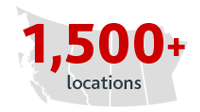Real bargaining, not binding arbitration, is needed
February 10, 2020
Contrary to Unifor National President Jerry Dias’s assertions, binding arbitration is not the path to ending the current labour disruption at the Co-op Refinery Complex (CRC) in Regina.
Unifor National’s insistence on binding arbitration comes after Saskatchewan Minister of Justice Don Morgan said last week that the provincial government cannot and will not impose binding arbitration. FCL CEO Scott Banda also said last week that binding arbitration is not the appropriate path to reach a fair deal.
“Our organization has to live with the legacy of any deal reached long after Mr. Dias and Unifor’s other executives have left our province,” said Banda.
“Setting arbitrary deadlines and repeating requests for binding arbitration that have already been declined by both FCL and the provincial government are not going to get us any closer to a deal that keeps the refinery sustainable. We need to have real discussions on complex issues and we need to have them without the threat of illegal blockades.”
FCL has maintained all along that it will return to bargaining as soon as Unifor abides by court injunctions in Saskatchewan and Alberta (and an anticipated injunction in Manitoba) and ends its illegal activities and blockades.
“Unifor has not bargained meaningfully with us—why would we expect them to bargain in good faith in seven days,” said Banda. “The last time we attempted to bargain in January, they folded their arms and proceeded to bring back their illegal blockades.”
In spite of Unifor’s illegal activities and attempts to avoid real bargaining, FCL, the CRC and local co-ops remain committed to fueling Western Canada as the CRC continues to operate safely and efficiently.
More information on the labour disruption is available at refineryfacts.ca.





